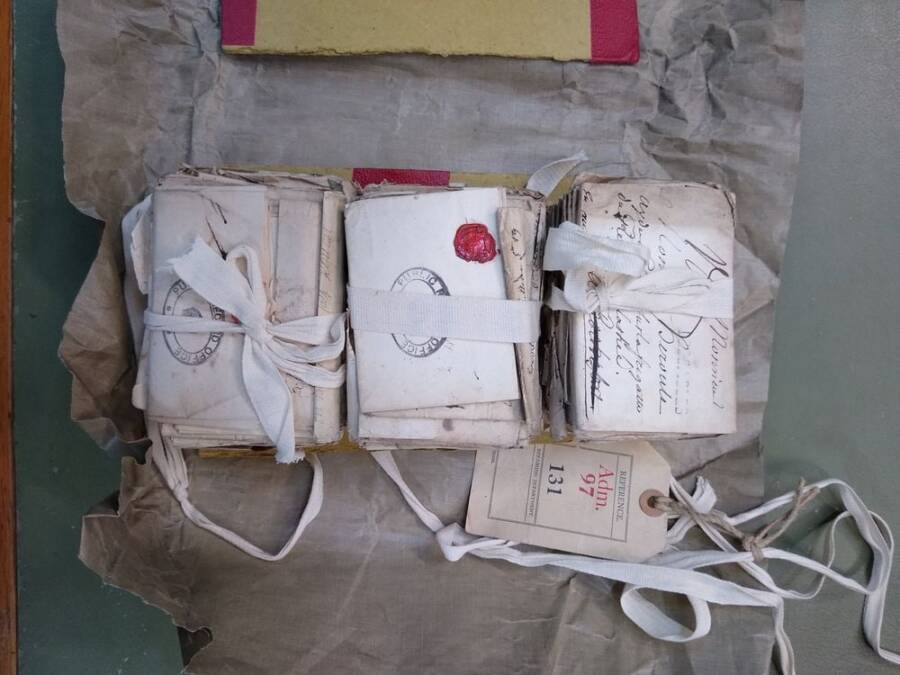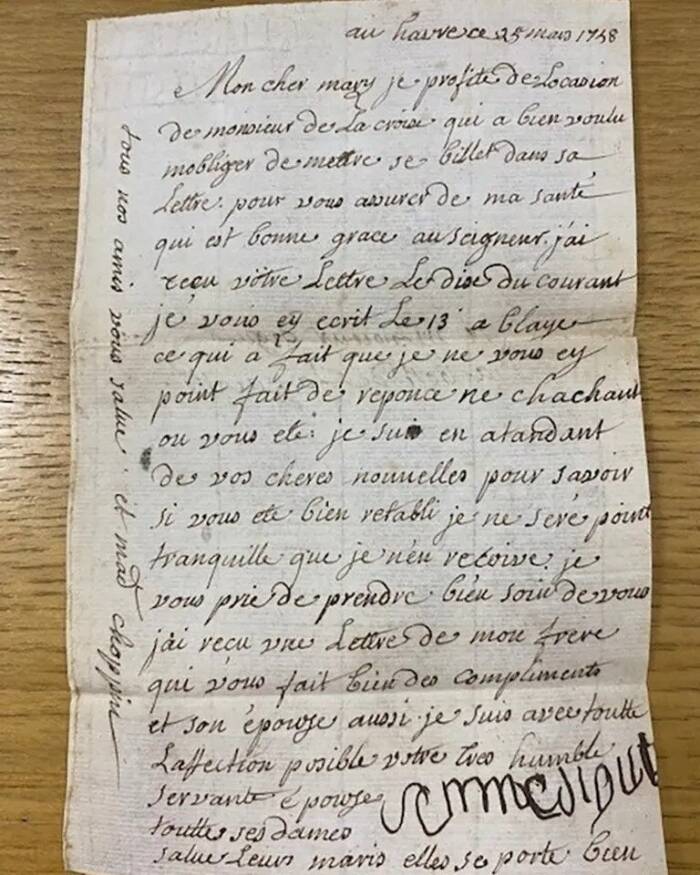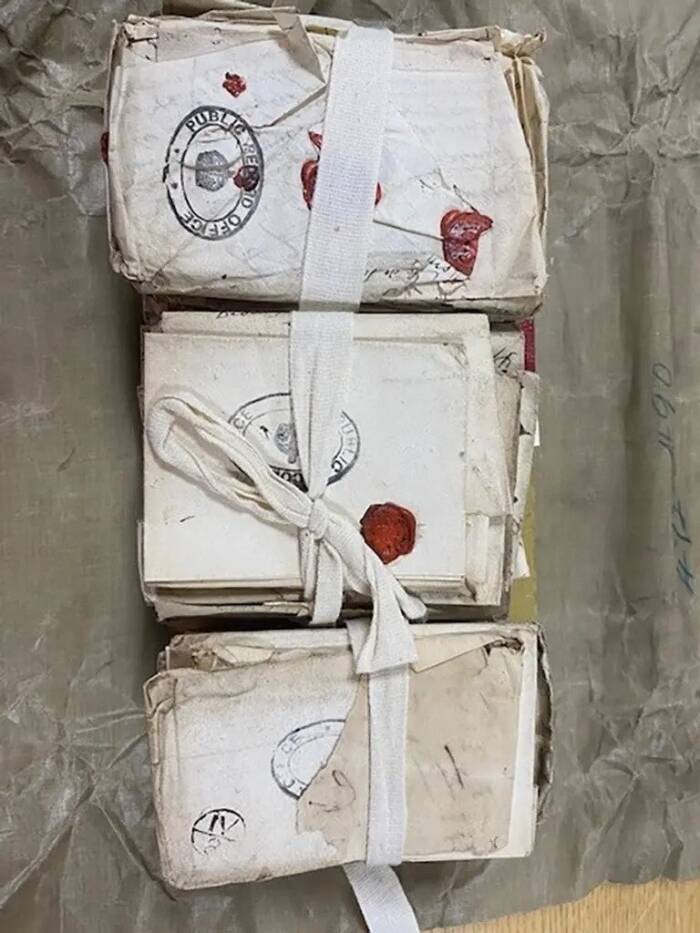The more than 100 letters were written and sent to sailors on the Galatée between 1757 and 1758 but never delivered after the ship was captured by the British during the Seven Years War.

The National Archives / Renaud MorieuxThe 100 or so letters contain sentiments of longing, bad news from home, and notes from nagging mothers.
Historian Renaud Morieux was conducting research at the National Archives in London in 2004 when he came upon a box of letters by chance. Opening it up, he discovered scores of unopened and unread notes sent to French sailors during the Seven Year War. Now, 265 years after they were sent, these letters have finally been read.
“I realized I was the first person to read these very personal messages since they were written,” Morieux, a professor of European history at the University of Cambridge, who recently published his findings in the journal Annales. Histoire, Sciences Sociales, said in a statement. “Their intended recipients didn’t get that chance. It was very emotional.”
Written between 1757 and 1758, the letters were sent to French sailors on a ship called Galatée. The New York Times reports that French authorities tried to deliver them at multiple ports but missed the ship every time. When the Galatée was captured by the British, the letters were sent on to London. But a low-level Admiralty clerk appears to have opened a few, decided they did not contain anything important, and stuck them in storage.
There, they were forgotten for over two centuries.
As such, the letters capture a fascinating moment in French history. They contain notes from the sailors’ families and lovers, and 59 percent were written by women, offering new insights into “female literacy, social networks, and experiences in wartime,” according to the statement.
“I cannot wait to possess you,” a woman named Anne Le Cerf wrote to her husband, using a word that could mean “embrace” or “make love to you.”

The National Archives / Renaud MorieuxA 1758 letter from Anne Diguet to her husband, Nicolas, in which Diguet says that she was waiting to hear from him and that she would “not be at peace” until she did.
“I could spend the night writing to you,” wrote another woman, Marie Dubosc, who tragically died a year later while her husband was probably still imprisoned, having never received her letter. “I am your forever faithful wife. Good night, my dear friend. It is midnight. I think it is time for me to rest.”
The letters weren’t all love letters, however. One came from an exasperated mother named Marguerite Quesnel. She chided her son Nicolas in a January 1758 letter for not writing enough to her.
“I think more about you than you about me,” Marguerite complained. “In any case I wish you a happy new year filled with blessings of the Lord. I think I am for the tomb, I have been ill for three weeks. Give my compliments to Varin [a shipmate], it is only his wife who gives me your news.”
The letters are a remarkable look into the lives of people often underrepresented in history. As Morieux told CNN, they capture the voices of 18th-century women and people of lower social classes who often couldn’t read or write. Indeed, some of the letters that Morieux studied were dictated by a scribe, evidently by someone who couldn’t write the letter themselves.

The National Archives / Renaud MorieuxThe letters offer fascinating insights into 18th century life, but also touch on something universal about the human experience.
But the letters bound for the Galatée also capture something more basic about people and how they dealt with challenges, stayed in touch with loved ones, and expressed affection.
“These letters are about universal human experiences, they’re not unique to France or the eighteenth century. They reveal how we all cope with major life challenges,” Morieux noted in the statement.
He continued: “When we are separated from loved-ones by events beyond our control like the pandemic or wars, we have to work out how to stay in touch, how to reassure, care for people and keep the passion alive. Today we have Zoom and WhatsApp. In the eighteenth century, people only had letters but what they wrote about feels very familiar.”
After reading about the letters to French sailors that went unopened for 265 years, see how Mary Queen of Scot’s decoded prison letters helped shed light on her final years in captivity. Or go inside the mysterious and chilling “From Hell” letter allegedly written by Jack the Ripper.





